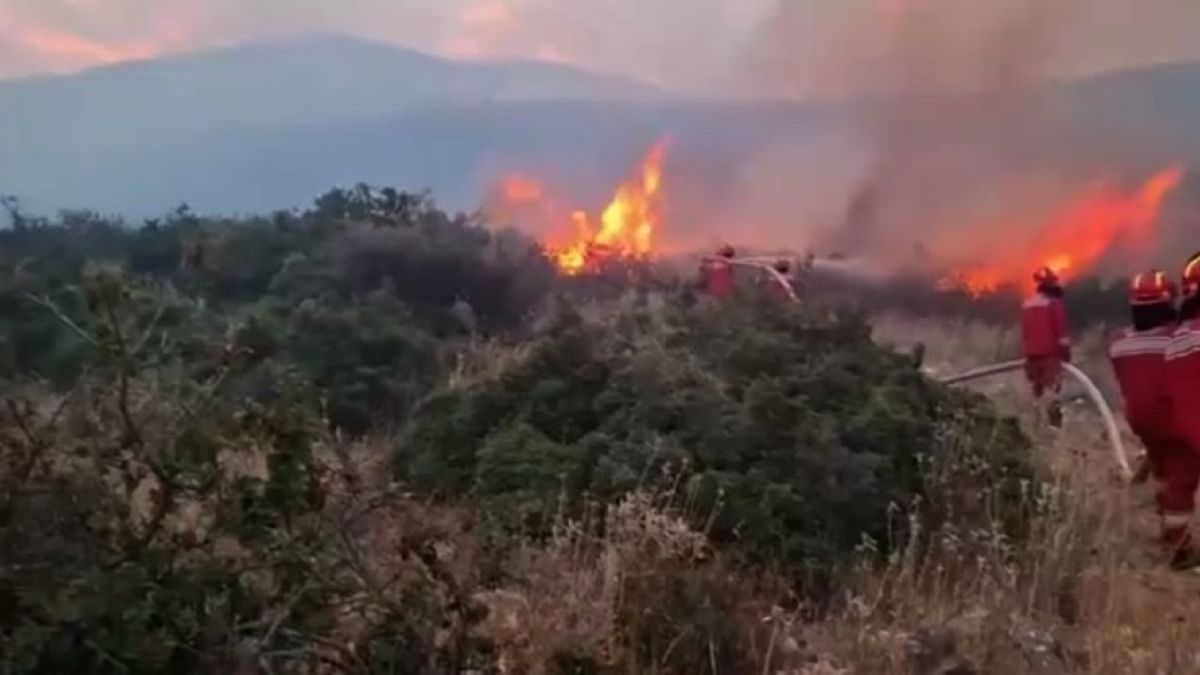

In the face of changing climatic patterns and environmental turmoil, various regions across Europe are taking strides to mitigate and manage natural challenges. Recent reports highlight both the resilience and cooperative efforts emerging as solutions to these pressing issues.
In the southern regions of Europe, countries like Greece and Turkey are confronting severe wildfires intensified by relentless heatwaves and strong winds. As temperatures hash over the 40-degree Celsius mark for more than a week, emergency services in these nations are engaged in fervent operations to safeguard communities. Greece, drawing solidarity from European allies, has welcomed international firefighting support, notably from Italy and the Czech Republic, to aid in combatting these persistent blazes. The Greek prime minister himself commended these efforts, underscoring the “titanic battle” waged by the rescue workers in their quest to subdue the infernos.
Similarly, in Eastern Europe, Albania and Bulgaria have reached out to the European Union for coordinated assistance in handling their own wildfire crises. Vast tracts of land and residential areas have succumbed to these fires, making international support not just welcome but necessary. This collective European approach to firefighting underscores an evolving ethos of shared responses to climate-induced challenges.
Meanwhile, the coastal landscapes of southern Spain face a different kind of ecological test. An invasive seaweed, ‘Rugulopteryx okamurae’, originating from Southeast Asia, has proliferated across the beaches of the Strait of Gibraltar. This species presents a formidable threat to local biodiversity, creating environmental and economic disruptions. Ecologists are engaged in determining sustainable management practices to address and hopefully reverse this spread, mindful of preserving the inherent ecological balance.
Across Europe, marine scientists are vocalizing concerns about the pronounced warming of oceanic climates. Data suggest that marine heatwaves may have steered the world’s oceans toward a critical ecological tipping point, potentially setting a new climatic standard. Such a condition challenges the intricate marine ecosystems that play pivotal roles in global environmental health, highlighting an urgent necessity for adaptive measures and policy-driven responses at international forums.
Forests, too, are navigating the brunt of climatic shifts. In the Auvergne-Rhône-Alpes region of France, the notable white firs are under threat due to persistent droughts and rising temperatures. In response, innovative measures including the use of drones and artificial intelligence are being adopted by cooperatives to safeguard these forests for posterity. This proactive engagement signifies a hopeful path wherein technology marries nature to foster long-term sustainability.
Together, these narratives illustrate a continental community striving not only to respond to immediate environmental upheavals but also planning for a stable ecological future. Through collaboration, innovation, and keen awareness, Europe aims not merely to confront these natural challenges but to cultivate resilience and ecological harmony.
Source: {link}
